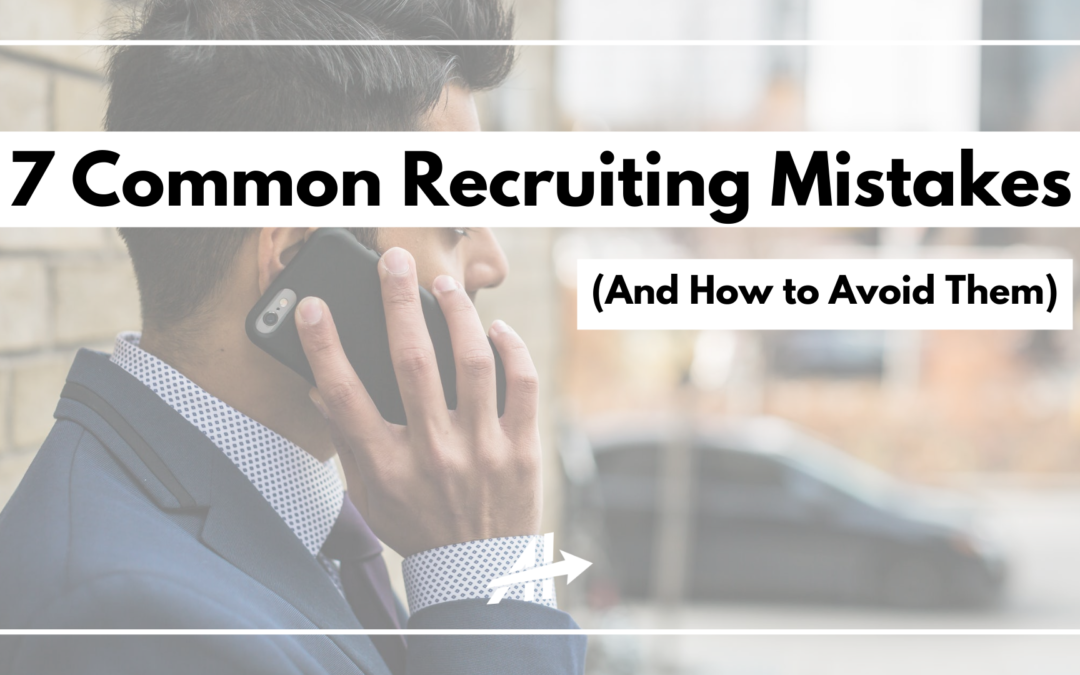Are you a recruiter or company that is trying to hire for a good match and are struggling? You could be making some very common recruiting mistakes without even realizing it. The good news is that you can avoid these missteps fairly easily once you are aware of them. Here are 7 of the most common recruiting mistakes:

1. Asking predictable questions that lead to canned/vague answers
The problem with basic or boilerplate questions (“What’s your greatest weakness?”) is that candidates will hit you right back with canned, rehearsed answers. You can still throw candidates a curveball — just make sure it actually reveals something about who they are.
2. Equating education and experience with skills
It’s hard not to be impressed by certain candidates’ resumes, especially when they come loaded with degrees or years of experience at a Fortune 100 company. But education and experience pale compared to the most important asset: the skills to do the job. Make sure you’re asking questions that will elicit insights into their soft AND hard skills.
3. Not staying in touch with candidates through the entire hiring process
Something Advanced Hires does extremely well is staying in touch with candidates throughout the entire process. It’s easy to lose candidates to things like counteroffers if you aren’t keeping them “warm” on the job you are hiring for.
4. Relying on external candidates only
It can be tempting to only look at external candidates, but there can be benefits to looking at internal candidates as well. Sometimes people who already work in the company, especially in larger ones with big talent pools, have the necessary skills sets for the job you are hiring for.
5. Focusing on culture add instead of culture fit
Culture add is about hiring people who align with your core values but also add unique skills, viewpoints, or life experiences that will help you grow as a team and a business. In fact, if you’re still hiring candidates because you think they would fit in well with your existing team, there’s a good chance you’re succumbing to unconscious biases that harm diversity efforts.
6. Automatically passing on “overqualified” candidates
If you routinely reject candidates because you think they’re overqualified, perhaps you should think again. Hiring managers may not want to hire someone who has more experience than they do and may overshadow them, but it’s important to hear candidates out and see what they are looking for from the job because it might actually be a good fit.
7. Failing to follow up when you don’t get a response from a candidate you’ve sourced
You send a message to a promising candidate, don’t hear anything back, and move on. But one message is rarely enough — to stand out, you’ll have to craft an engaging message and you might have to send it more than once. Using a phrase like “Let’s stay in touch down the road” can help create a sense of familiarity as well.





